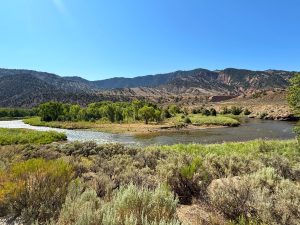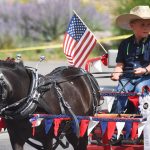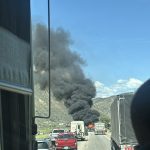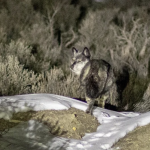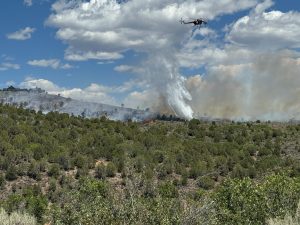Colorado’s congressional delegation asks for Colorado River funding to flow back to Western Slope projects
The federal government has yet to release $140 million in funding previously granted, including $40 million for the Shoshone water rights acquisition
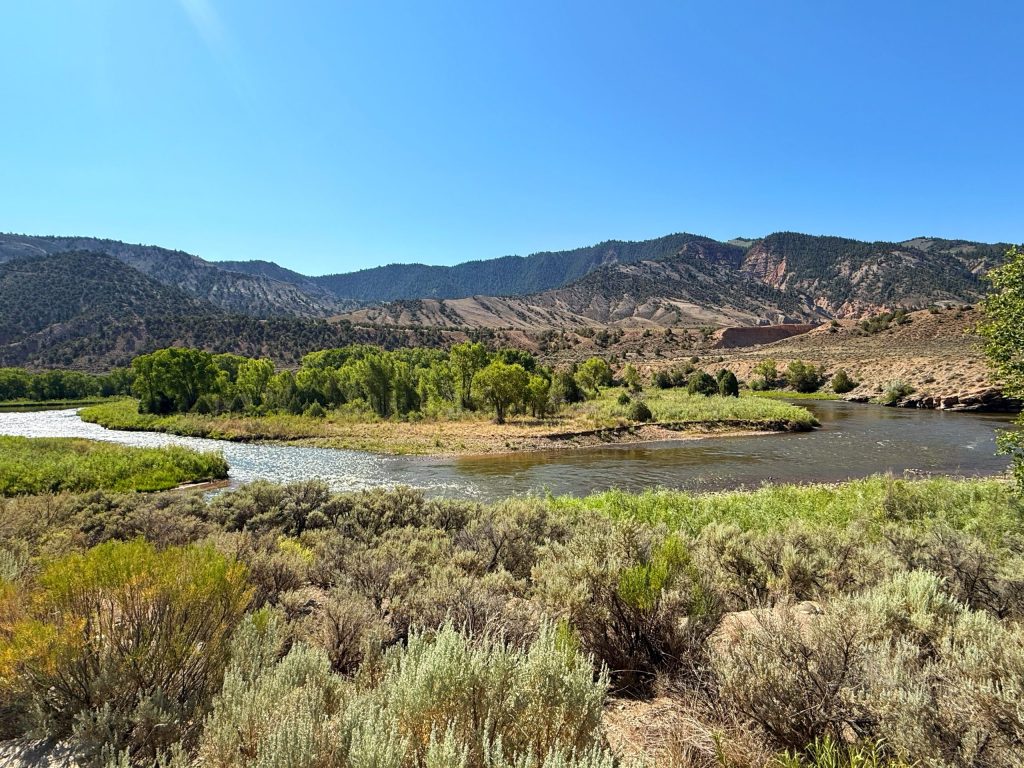
Ali Longwell/Vail Daily
Colorado’s congressional delegation has united to ask the Trump administration to release $140 million in funding previously granted to water projects in the state, including $40 million to aid in the Colorado River District’s purchase of the Shoshone water rights.
The funds were awarded to 17 Western Slope projects in the final days of President Joe Biden’s administration as part of the Inflation Reduction Act’s drought mitigation grant opportunity for the Upper Colorado River Basin.
Three days after the awards were announced, President Donald Trump took office and the funds were frozen as part of his “Unleashing American Energy” executive order. This Day 1 order called for all federal agencies to “immediately pause the disbursement of funds appropriated through the Inflation Reduction Act.”
While the Trump administration has since released funds for two of the projects in the Orchard Mesa Irrigation District in Palisade, the remaining funds remain in limbo.
On Tuesday, Aug. 5, Colorado’s full delegation sent a letter to top officials at the U.S. Department of the Interior and Bureau of Reclamation, pushing for their release.
“We ask you to move forward with obligating the remaining $140 million worth of Bucket 2 projects in Colorado – not just for the benefit of our state, but for the resilience of the entire Colorado River Basin,” reads the letter.
“Our water infrastructure in Colorado is not just a network of manmade dams, canals, and pipelines – crucially, it is also the streams and rivers that convey water, the headwater meadows and wetlands that regulate water timing, the healthy forests that store snowpack, the riparian areas that prevent erosion, and the reliable flows that we all count on.”
The letter was signed by Colorado Democratic Sens. John Hickenlooper and Michael Bennet, Democratic Reps. Joe Neguse, Brittany Pettersen, Diana DeGette and Jason Crow, and Republican Reps. Jeff Hurd, Jeff Crank, Gabe Evans and Lauren Boebert.
The Inflation Reduction Act set aside $4 billion toward drought mitigation, which included funds for the Bureau of Reclamation’s Upper Colorado River Basin System Conservation and Efficiency program, also known as the Bucket 2E funding. In January, the Bureau under Biden’s administration allocated a total of $388.3 million to 42 projects on tribal land and in states in the Upper Basin.
This included $152 million for 17 projects in Colorado.
Each of the projects aims to “help manage the impacts of the unrelenting 25-year drought affecting the Colorado River Basin” at a time when streamflows dwindle and negotiations over the river’s future are underway, the lawmakers’ letter states.
“We must make these investments in long-term drought management now as Congress intended, and not delay until only short-term solutions are available,” it adds. “Each of Colorado’s Bucket 2 projects deliver water supply security in ways that make sense for our state.”
In June, the Bureau released $10.5 million of the funds to the Orchard Mesa Irrigation District to improve water delivery to the 15-mile reach of the Colorado River, which extends from Grand Junction and the confluence of the Gunnison River and serves as critical habitat for several endangered fish species. It also released $1.5 million for Orchard Mesa to install new metering technology in the Grand Valley.
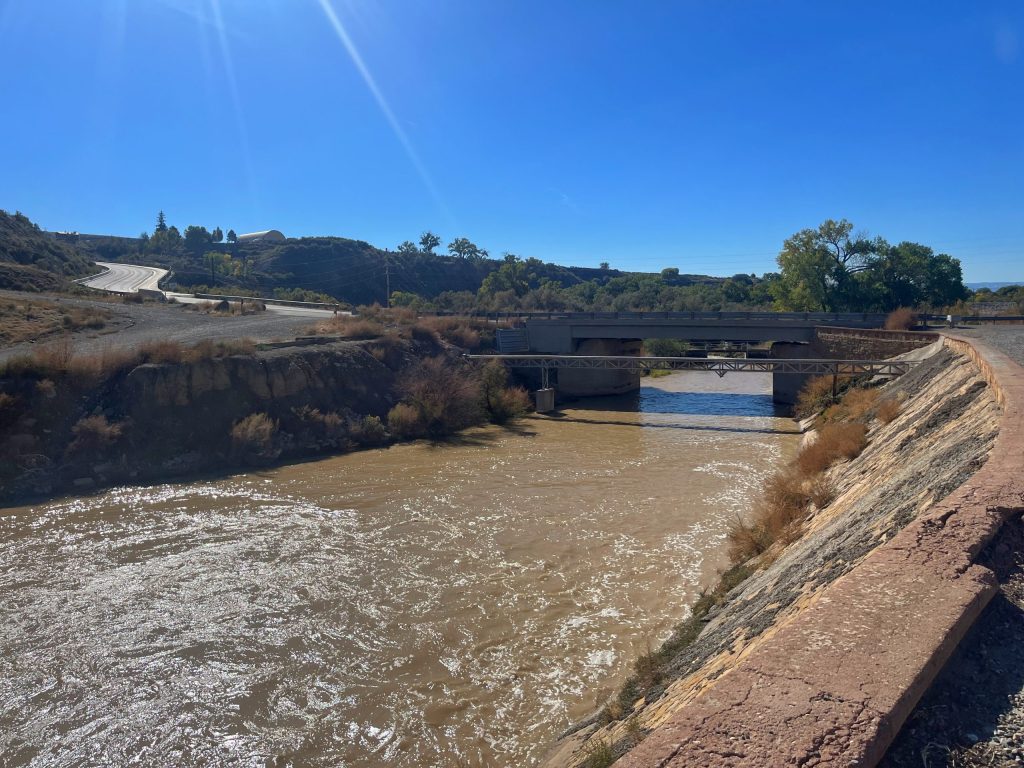
Of the Colorado awardees, the largest allocation was $40 million to the Colorado River District to purchase the Shoshone water rights from Xcel Energy. The funds would go a long way toward the $98.5 million that the River District — which represents 15 counties on the Western Slope — needs to purchase the rights from the provider.
Outside of the frozen federal dollars, the River District has raised $57.2 million from the state legislature, its board and the various Western Slope municipalities and utilities it serves.
The Shoshone water rights — which include a 1905 senior right tied to the Shoshone Power Plant in Glenwood Canyon and a secondary, junior right established in 1929 for other water users, including Front Range providers — are among the oldest and largest non-consumptive rights on the Colorado River. The seniority of the Shoshone right grants it precedence over many of the upstream users.
The River District has stated that its acquisition will help ensure that the river’s historic in-stream flows continue in perpetuity, regardless of the plant’s future.
The other Colorado projects that are awaiting funding from the Inflation Reduction Act include:
- $25.6 million to support ecosystem and habitat restoration and address drought mitigation in six subbasins in southwest Colorado
- $16.7 million to the Southern Ute Indian Tribe to repair water infrastructure on its reservation
- $24.3 million for a watershed restoration and aquatic connectivity project in the Grand Mesa and Upper Gunnison watershed
- $7 million to restore stream habitats along the Fraser, Blue and Colorado Rivers in Grand County
- $5 million for a river and wetland restoration project at the confluence of the Yampa River and Walton Creek
- $4.6 million for restoration and drought resiliency projects on Western Colorado conserved lands
- $4.2 million for stream habitat restoration and improving fish passage for native species in Grand County
- $3 million to convert wastewater lagoons into wetlands in the town of Palisades
- $2.8 million to remove a dam and restore wetlands and wildlife habitat at Fruita Reservoir
- $1.9 million to restore meadows in the headwaters using structures that mimic beaver dams
- $1.8 million to rehabilitate the Uncompahgre River tailwaters, addressing habitat degradation, aging structures and more
- $1.5 million to improve fish habitat and flows at the Gypsum Ponds State Wildlife Area on the Eagle River
- $750,000 for habitat restoration in the Gunnison River Basin
- $518,000 to improve and restore aquatic health at Williams Fork Reservoir with monitoring tools and targeted treatments to combat algal blooms

Support Local Journalism

Support Local Journalism
Readers around Glenwood Springs and Garfield County make the Post Independent’s work possible. Your financial contribution supports our efforts to deliver quality, locally relevant journalism.
Now more than ever, your support is critical to help us keep our community informed about the evolving coronavirus pandemic and the impact it is having locally. Every contribution, however large or small, will make a difference.
Each donation will be used exclusively for the development and creation of increased news coverage.

